At Blom Contracting, we aren’t just committed to finding the most eco-friendly alternatives for your home, we also do our best to practice what we preach, and beyond. We hope that by giving you the information about green alternatives and eco-friendly options in your life, it will persuade you to go green too. The mistake that so many people make is doing nothing because they think they can only do a little, and that their efforts won’t matter in the grand scheme of things. However, if everyone started doing what they can, even if it’s something small, to help the planet, then everyone’s small effort would equate to a very large difference.
If you haven’t already, check out our previous blog posts about eco-friendly swaps that are completely free , green alternatives that save you money, and some eco-friendly swaps that are equal in cost!
As you may have initially thought, some eco-friendly options can get a bit expensive, but if going green and helping the planet is something that you care about a lot, and it is in your budget to do so, here are some more ways to think about the earth first. A lot of these options actually end up paying for themselves in the end, again saving you money in the long run!
- Metal or Bamboo Reusable Straws
- Comparing one reusable straw to one plastic straw, it is obvious which one costs more, however, depending on how many straws you use, it may be a good investment in the long run. If you’re all for saving the turtles and keeping straws out of landfills and the ocean, a metal or bamboo straw is the way to go. If you’re not in a position to purchase a reusable straw, try to ask for your drinks without straws at restaurants or coffee shops.
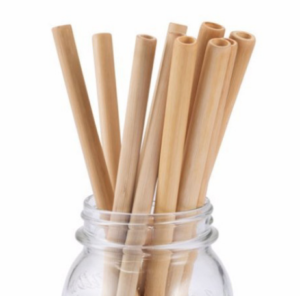
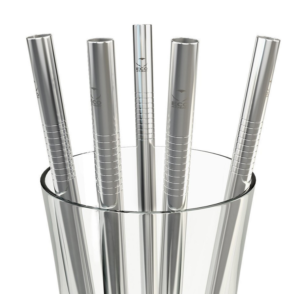
- Comparing one reusable straw to one plastic straw, it is obvious which one costs more, however, depending on how many straws you use, it may be a good investment in the long run. If you’re all for saving the turtles and keeping straws out of landfills and the ocean, a metal or bamboo straw is the way to go. If you’re not in a position to purchase a reusable straw, try to ask for your drinks without straws at restaurants or coffee shops.
- Reusable Utensils
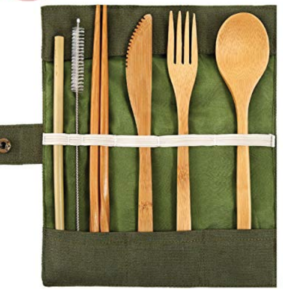 Bamboo utensils are great if you can afford it and have the room to carry them around. When getting take out or fast food, plastic is usually the only option for cutlery unless you bring your own! Some bamboo utensil sets you can buy even have reusable straws in them!
Bamboo utensils are great if you can afford it and have the room to carry them around. When getting take out or fast food, plastic is usually the only option for cutlery unless you bring your own! Some bamboo utensil sets you can buy even have reusable straws in them!
- Reusable Bags
- We cannot preach this one enough!! We love reusable bags. The average family takes home 1500 plastic bags per year.
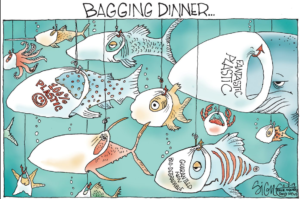 Now that stores are charging 10c per bag, that adds up to 150$ in one year, while a reusable bag can cost as little as a couple dollars. Plastic bags also require oil to manufacture. Many grocery and department stores now offer the option of purchasing reusable bags, usually for less than $3.
Now that stores are charging 10c per bag, that adds up to 150$ in one year, while a reusable bag can cost as little as a couple dollars. Plastic bags also require oil to manufacture. Many grocery and department stores now offer the option of purchasing reusable bags, usually for less than $3. - A 6 pack of reusable bags is available on amazon for $13.45 https://www.amazon.ca/Reusable-Shopping-Washable-Eco-Friendly-Lightweight/dp/B07MMWH441/ref=sr_1_4?keywords=reusable+bag+for+groceries&qid=1570128505&s=kitchen-substore&sr=1-4
- There are many options to choose from! While you’re at it, although grocery stores don’t charge for plastic produce bags, there are alternatives to that too, such as mesh or cloth bags.
- We cannot preach this one enough!! We love reusable bags. The average family takes home 1500 plastic bags per year.
- Reusable Water Bottle
- A reusable water bottle pays for itself in no time. A pack of 24 plastic water bottles is around $5, while a reusable water bottle averages at about $15-20. There is access to a water fountain or tap just about anywhere, so it’s easy to refill.
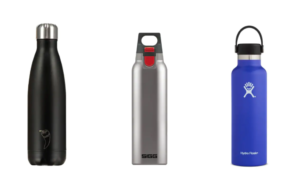
- Biodegradable Party Supplies
- Birthday parties almost always need paper plates, plastic utensils, and cups, and now there are more greener options to choose from, such as biodegradable plates, utensils, and cups. There are a few options for greener party supplies such as Susty Party on Amazon, Eco Party Time, or FirstChoice EcoNaturals (saves you money!).
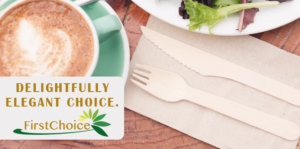
- Birthday parties almost always need paper plates, plastic utensils, and cups, and now there are more greener options to choose from, such as biodegradable plates, utensils, and cups. There are a few options for greener party supplies such as Susty Party on Amazon, Eco Party Time, or FirstChoice EcoNaturals (saves you money!).
- Laundry Detergent Strips
- Tru Earth has detergent strips that are paraben and phosphate free, are vegan, and completely dissolve in your wash.
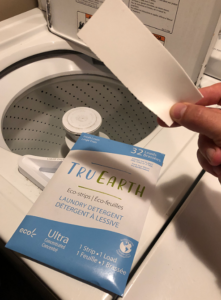 They come in compostable packaging and are compatible with front load or top load washers. This gets rid of the plastic packaging of the conventional laundry detergent, as well as the potential mess of pouring! You get about half as many washes as you would from a bottle of detergent and it’s only a little cheaper. Again, if you are in a position to make the switch, this is another small way you could help the planet https://www.tru.earth
They come in compostable packaging and are compatible with front load or top load washers. This gets rid of the plastic packaging of the conventional laundry detergent, as well as the potential mess of pouring! You get about half as many washes as you would from a bottle of detergent and it’s only a little cheaper. Again, if you are in a position to make the switch, this is another small way you could help the planet https://www.tru.earth
- Tru Earth has detergent strips that are paraben and phosphate free, are vegan, and completely dissolve in your wash.
- Bamboo or reusable q-tips
- Q-tips are used and disposed millions of times daily. They are made out of rolled paper or tubular plastic, with cotton on either end. The use of a bamboo cotton swab will eliminate the single use plastic waste produced by traditional cotton swabs. They are slightly more expensive than regular cotton swabs but are completely biodegradable. When buying bamboo q-tips, try not to buy them in a plastic bag, but rather a box. There are also reusable q-tips now which are also more expensive than a box of q-tips but then you would never have to buy q-tips again. They come in an ear cleaning version and a makeup cleaning version, and usually come in their own case.
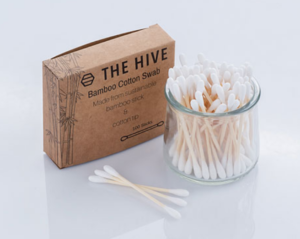
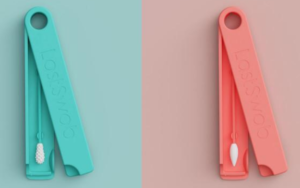
- Q-tips are used and disposed millions of times daily. They are made out of rolled paper or tubular plastic, with cotton on either end. The use of a bamboo cotton swab will eliminate the single use plastic waste produced by traditional cotton swabs. They are slightly more expensive than regular cotton swabs but are completely biodegradable. When buying bamboo q-tips, try not to buy them in a plastic bag, but rather a box. There are also reusable q-tips now which are also more expensive than a box of q-tips but then you would never have to buy q-tips again. They come in an ear cleaning version and a makeup cleaning version, and usually come in their own case.